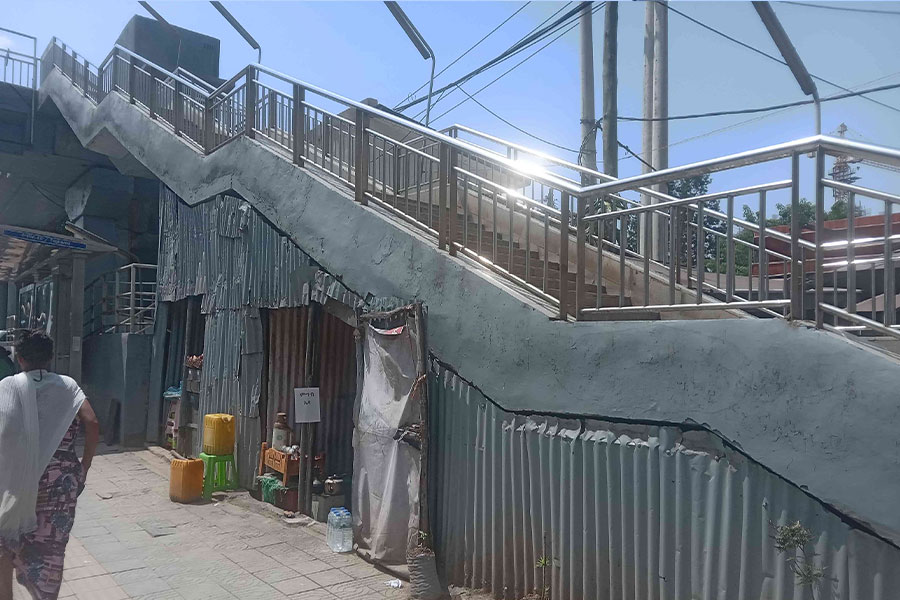
Viewpoints | Apr 26,2019
William Shakespeare has never been a stranger to expressing a certain truth in his lines.
“All the world’s a stage, and all the men and women merely players,” he once wrote in his 16th-century play, “As You Like It.”
Yet, two decades before this, Guillaume de Salluste expressed a similar sentiment, while the Irish have the age-old adage that the world is a stage and most of us are desperately unrehearsed.
cliff coccker
It is one of the things that remind one of Cliff Cocker, who passed away a few months ago. He was a lifelong political activist with a range of talents as an actor, comedian, director, lecturer and scriptwriter. Clifford was also arts editor for the Morning Star, a British socialist daily, working right up to his death in August 2021 due to COVID-19.
Starting in the mid-1980s, he was teaching theatre studies at Addis Abeba University. He was further assigned as our freshman English teacher. As we met him, it looked as though we were like two performers in a play; we as students and he as a teacher, but on separate stages, one with a ridiculously melodramatic essence and the other its opposite.
At first, we were glad that our English teacher was a Brit, but that was in vain. It never started well for almost all of us. Many of our classmates who were not from Addis Abeba did not only not have an English dictionary but had never seen one before coming to the capital. The rest of us never had one, yet had to go to a library to look for the meaning of words. As it is to an extent true today, most people believed that English was important only for schools, especially for composing the mandatory senior year paper, but with diminishing marginal returns after that.
It was a kind of a roller coaster immediately turning our pleasure to pressure. Yet, a significant number of our classmates readily rehearsed as if for the stage. This was fitting for the man who is a stage director and for whom each word counts with its proper articulation. Previously while going through an English dictionary, our focus of struggle was only about meanings. Not after that. An item we never thought necessary and consequently never cared about was phonetics.
“Phonetic describes the way that spoken words sound. To sound out an unfamiliar word, you break it into its phonetic parts, saying each in the order in which it appears,” describes Vocabulary.com. It is “about pronunciation, or the way language sounds.”
In no other class do I remember that we studied these phonetic sounds, probably as our classrooms were non interactive and our teachers were not great English speakers. We proved that rehearsing begins from simple phonetic mastery; it is only what is rehearsed that stays put.
This is also what other industries learn from the stage performing industry, like mastering pitches or maintaining a customer.
Why do we keep a job description file and update it, if not to identify desperately unrehearsed gaps?
It helps us develop a training plan that guarantees a minimum, on-the-job training or work-related instruction that prepares us to perform our current jobs. We rehearse to find the subtle hints of what makes us better at that job. It is not merely an act of committing to memory and automating responses. It is a tool for identifying hidden weaknesses and improving upon them continually.
The same goes for strategic papers and policies. It should help those implementing it rehearse knowledge, skills and attitudes for the successful completion of their task, and accommodate technological changes.
PUBLISHED ON
Jan 22,2022 [ VOL
22 , NO
1134]


Viewpoints | Apr 26,2019

My Opinion | Sep 17,2022

Viewpoints | Oct 20,2024

Radar | Jun 26,2021

Addis Fortune | May 03,2024

Verbatim | Jul 05,2025

Commentaries | Oct 31,2020

My Opinion | May 08,2021

In-Picture | May 24,2025

Commentaries | Jan 19,2024

Dec 22 , 2024 . By TIZITA SHEWAFERAW
Charged with transforming colossal state-owned enterprises into modern and competitiv...

Aug 18 , 2024 . By AKSAH ITALO
Although predictable Yonas Zerihun's job in the ride-hailing service is not immune to...

Jul 28 , 2024 . By TIZITA SHEWAFERAW
Unhabitual, perhaps too many, Samuel Gebreyohannes, 38, used to occasionally enjoy a couple of beers at breakfast. However, he recently swit...

Jul 13 , 2024 . By AKSAH ITALO
Investors who rely on tractors, trucks, and field vehicles for commuting, transporting commodities, and f...

Oct 11 , 2025
Ladislas Farago, a roving Associated Press (AP) correspondent, arrived in Ethiopia in...

Oct 4 , 2025
Eyob Tekalegn (PhD) had been in the Governor's chair for only weeks when, on Septembe...

Sep 27 , 2025
Four years into an experiment with “shock therapy” in education, the national moo...

Sep 20 , 2025
Getachew Reda's return to the national stage was always going to stir attention. Once...